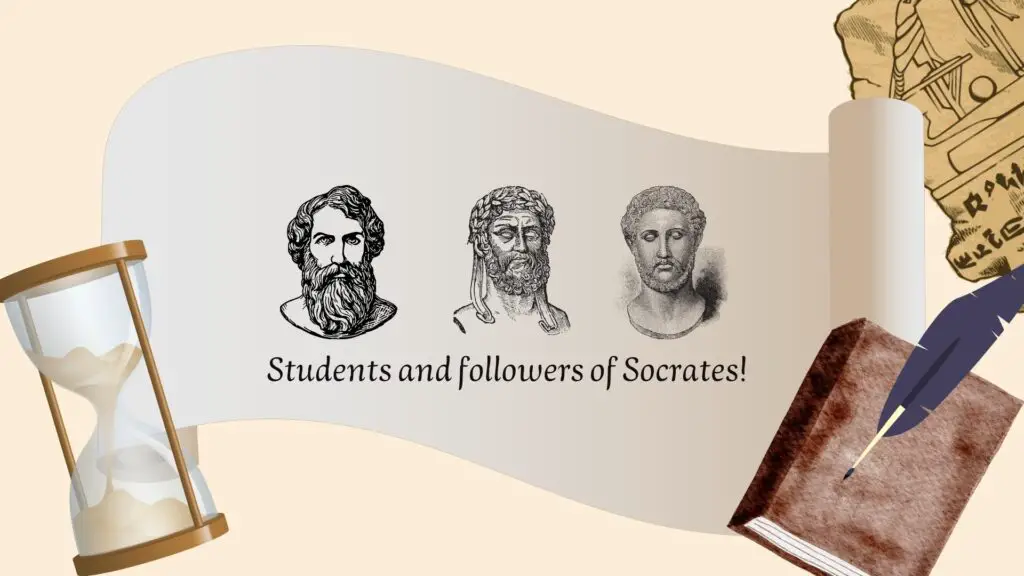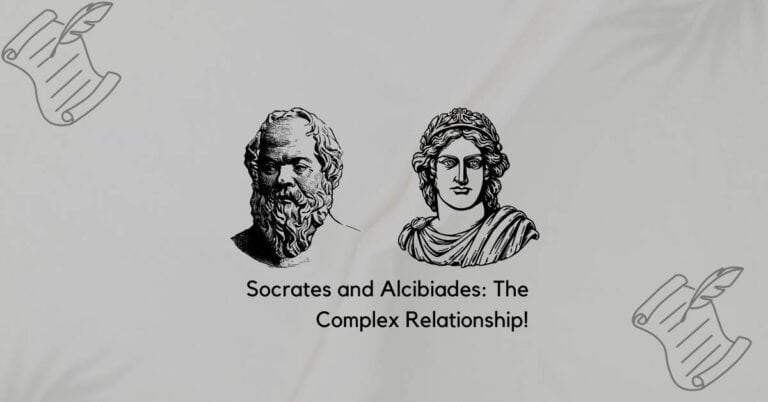Students of Socrates: Elite 5 and Influential Ancients!
Ever felt like your brain was being gently turned upside down? That’s kind of what it was like hanging out with Socrates. He was a persistent questioner who wouldn’t let anyone off the hook, not even his closest friends.
He never wrote anything down, but his ideas are still buzzing around today. Why? Because Socrates’ students, like Plato and Xenophon, soaked up his wisdom and then added their own two cents. They became outstanding philosophers themselves, all thanks to Socrates’ unique brand of mind-bending inquiry.
In this blog, we will discuss Socrates’ top 5 noted students, lesser-known followers, and his relationships with other philosophers. But before diving into that, let’s examine the significance of his students in the history of philosophy.
Why Students of Socrates are Important in the History of Philosophy?
Top 5 Noted Students of Socrates:
Socrates was both loved and admired by a lot of his fellow citizens. But he was also hated for his different way of looking into sensitive things like religion, God, and other obvious beliefs.
However, he attracted some of the greatest minds of his time to his unique personality. As a result, we can see some of the greatest philosophers who shaped the world. They are none other than Socrates’ noted students. Here is a list of them:
1. Plato
Among the notable individuals who studied under Socrates, Plato stands out as one of the most prominent figures. Philosopher Plato, whose real name was Aristocles is often considered Socrates’ most famous pupil.
Born into an aristocratic Athenian family, Plato initially aspired to pursue a political career but was drawn to philosophy after encountering Socrates.
Plato’s dialogues, which feature Socrates as the main character, provide valuable insights into Socratic philosophy and its applications in various aspects of life. The truth is, most of what we know about Socrates comes from the writings of Plato.
Plato immortalized Socrates’ ideas in a series of dialogues featuring Socrates as the main character. These dialogues, like the Apology, Euthyphro, Crito, and the famous Republic, showcase Socrates’ famous method of questioning and explore a wide range of philosophical topics.
While some scholars debate how much of Plato’s writing reflects Socrates’ actual views versus Plato’s own developing ideas, these dialogues remain our primary window into the mind of the Athenian gadfly.
2. Xenophon
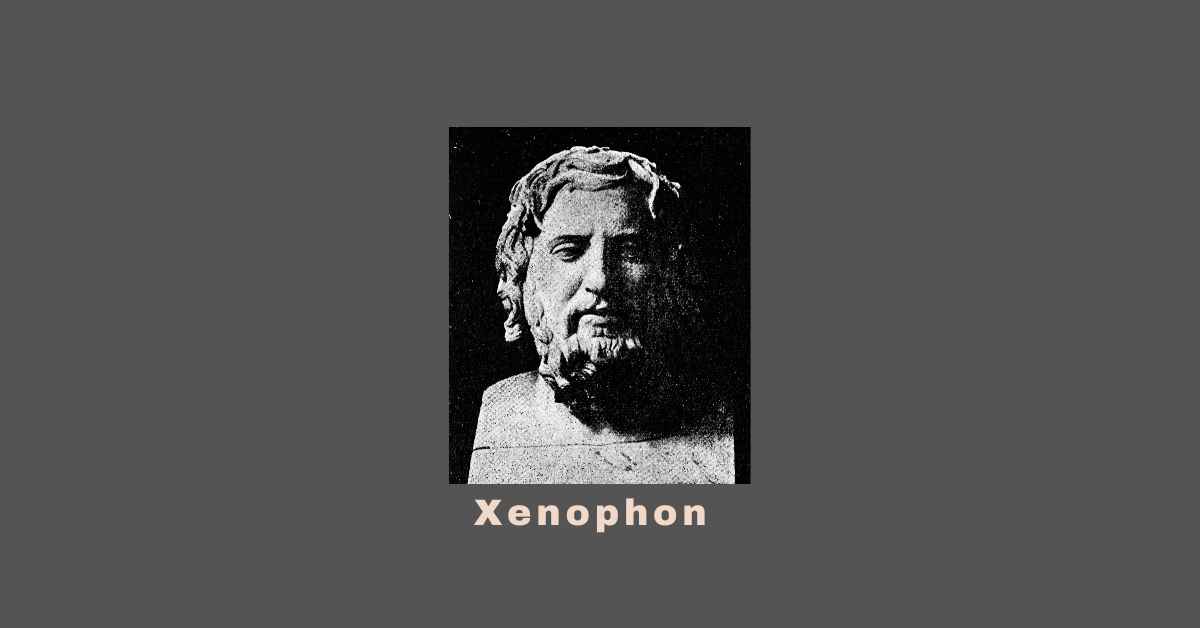
Xenophon, another student of Socrates, offered a different perspective on Socratic philosophy through his writings. Born into a wealthy Athenian family, Xenophon was initially attracted to military pursuits but later became interested in philosophy.
He became one of Socrates’ disciples and recorded his conversations with the philosopher in his works, providing additional insights into Socrates’ teachings and character.
Xenophon’s philosophy is deeply rooted in preserving and interpreting the teachings of Socrates. Xenophon emphasizes the practical aspects of Socrates’ teachings.
In “Memorabilia”, he showcases how Socrates’ questioning methods and emphasis on reason could be applied to everyday life, leadership, and ethical dilemmas.
3. Aristippus
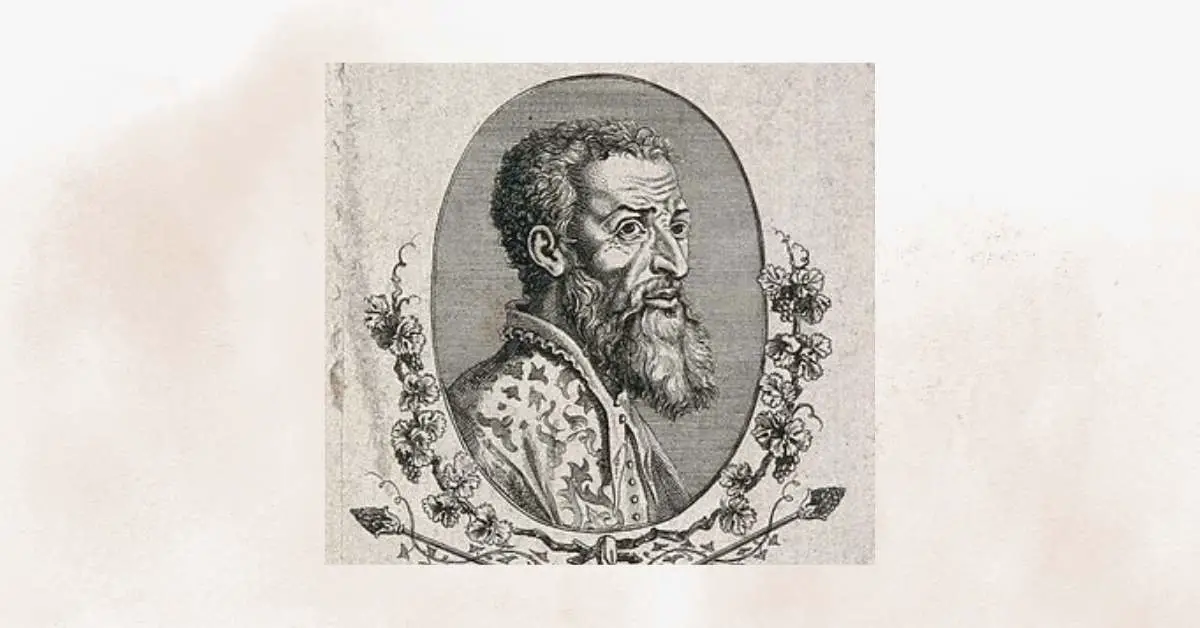
Aristippus, known for his hedonistic philosophy, was born into a wealthy family in Cyrene. He was drawn to Socrates’ teachings and adapted Socratic principles to emphasize the pursuit of pleasure and happiness. For Socrates, the ultimate goal in life was living a virtuous life. Aristippus, on the other hand, saw pleasure as the ultimate good.
Despite their philosophical differences, Aristippus remained a devoted student of Socrates and contributed to the diversity of philosophical thought in ancient Greece.
You can read the linked blog which explores Socrates and Aristippus’ contrasting views on virtue and pleasure, offering insight into their relationship. Moreover, you can read this blog on Aristippus and Epicurus’ concept of hedonism to learn more about Aristippus’ Philosophy.
4. Antisthenes
Antisthenes, the founder of the Cynic school of philosophy, was a contemporary of Socrates. He was born around 445 BCE. It was believed that his mother was of Thracian origin.
During his early years, he engaged in combat in Tanagra in 426 BCE and received education from Gorgias. So, he was a student of Gorgias at first, and later he became a devoted student of Socrates.
Driven by his fervor for the Socratic concept of virtue, he established his own educational institution in Cynosarges, where he attracted the poorer segments of society with his modest lifestyle and pedagogy.
According to Diogenes Laërtius, his writings included ten volumes, but only parts of these volumes have survived.
5. Crito
Crito was a close friend and confidant of Socrates. We learned about him because of the dialogue written by Plato, which is named after him, “Crito.”
He played a significant role in preserving Socrates’ memory and teachings, as depicted in Plato’s dialogues. He was a loyal friend who tried to persuade Socrates to escape his death sentence.
The dialogue tells us that in 399 BCE, after an Athenian jury of 500 convicted Socrates of impiety and corrupting the youth, Crito visited him in prison before dawn with a plan to escape.
He was surprised to find Socrates sleeping peacefully despite facing execution that day.
Crito proposed bribing the guards and fleeing to another Greek city-state, arguing that his prosecutors wouldn’t chase him.
Crito tried to persuade Socrates by suggesting that his death would make him (Crito) look bad as if he hadn’t done everything to help. He also argued that Socrates’ sons would be left without a father. However, Socrates refused, outlining his reasons why escape wouldn’t be right.
The connection between Socrates and Alcibiades:
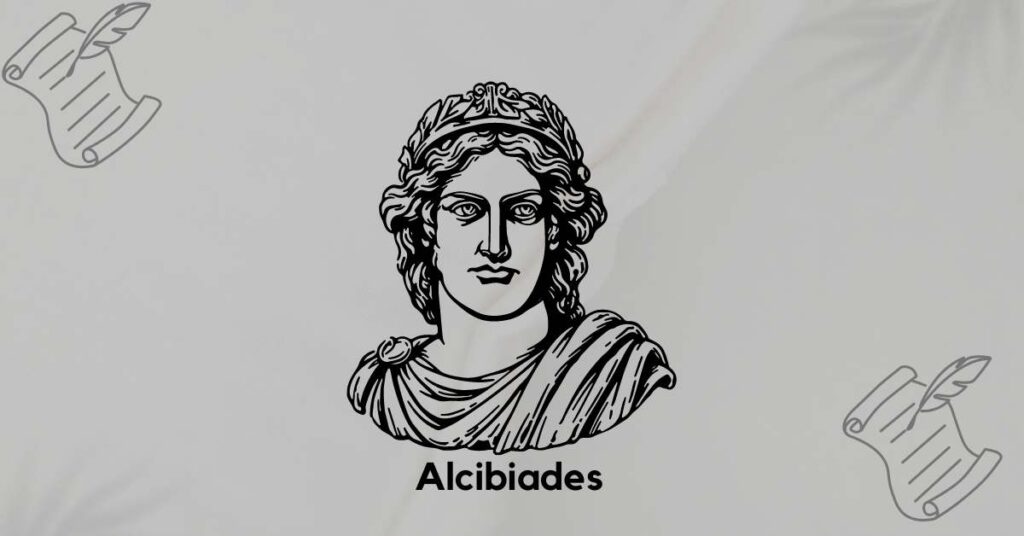
Alcibiades, a notable figure in ancient Athens, possessed charisma, intelligence, and ambition. Despite his aristocratic background and penchant for politics and warfare, he found himself intrigued by Socrates’ intellectual challenges.
As one of Socrates’ most renowned students, Alcibiades actively engaged in philosophical discussions and debates with the esteemed philosopher. However, his ambitious nature often led him astray.
He faced criticism for his reckless behavior and endured accusations of various political scandals throughout his career. Despite his admiration for Socrates and active participation in philosophical discourse, Alcibiades’ thirst for power ultimately eclipsed his intellectual pursuits.
Alcibiade’s intricate relationship with Socrates underscores the tension between philosophical inquiry and worldly ambition, offering insight into the complexities of human nature and the trials of moral character in ancient Athens.
Lesser-known pupils of Socrates:
In addition to the well-known students of Socrates mentioned earlier, many other exciting figures learned from him. But most of them were less famous than the previous ones. Here’s a look at some of them:
Aeschines of Sphettus
A lesser-known but significant figure in Athenian philosophy was Aeschines of Sphettus. Living from around 425 to 350 BC, he was a contemporary of Socrates and became his pupil during his youth. To avoid confusion with another prominent Athenian named Aeschines, historians often call him “Aeschines Socraticus.”
He was a Socratic philosopher. There is some debate about the nature of Socrates and Aeschines’ relationship. However, Aeschines is mentioned in Plato’s dialogues, a key source of information about Socrates and his circle.
Aeschines of Sphettus was reportedly present at both Socrates’ trial and execution, according to Plato’s account.
Following Socrates’ death, Aeschines emulated Plato by composing philosophical dialogues featuring Socrates as the main character.
Though these writings are known only through fragments and quotes from later authors, Aeschines was admired in ancient times for his faithful depiction of Socratic conversations.
Scholars claim his work was more similar to Plato’s style than Xenophon’s in presenting these dialogues.
Aristodemus of Cydathenaeum: A Devoted Follower of Socrates
Plato’s “Symposium” portrays Aristodemus as a short and possibly lower-class individual who didn’t wear shoes. Xenophon uses a similar term, referring to him as “Aristodemus the dwarf.” Interestingly, Aristodemus shared his deme (a local Athenian district) with the famous playwright Aristophanes, who also appears in Plato’s “Symposium.”
While details about his life are scarce, scholars believe he was part of an earlier generation of Socrates’ students. This theory is based on his portrayal and the assumption that he appears in Aristophanes’ comedy “Banqueters” from 427 BCE. Another clue is his absence from accounts of Socrates’ final days in 399 BCE, suggesting he might have died before then.
Cebes of Thebes
Cebes of Thebes was a student of Socrates and is featured in Plato’s dialogues “Phaedo” and “Crito.” He is depicted as a thoughtful and serious individual who grapples with philosophical questions. Plato’s dialogues offer valuable insights into Socrates’ teachings and their impact on his students.
Chaerephon
Chaerephon was a friend and associate of Socrates, mentioned in several of Plato’s dialogues. He is described as a strong supporter of Socrates and his beliefs. These dialogues provide a window into the relationships Socrates cultivated with his students.
Phaedrus (Athenian)
Phaedrus is a character in Plato’s dialogue of the same name. He is an Athenian nobleman interested in rhetoric and philosophy. Plato’s dialogues are a primary source for many of Socrates’ students, though some scholars argue for a more critical approach to portraying Socrates’ ideas.
Simon the Shoemaker
Living in Athens during the late 5th century BC was a shoemaker called Simon. However, Simon was not an ordinary shoemaker; he was an acquaintance of Socrates and a man deeply interested in philosophy. Our primary source of information about Simon comes from Diogenes Laërtius’ book “Lives and Opinions of Eminent Philosophers.” Plutarch and Synesius also briefly mention him. Interestingly, a student of Socrates named Phaedo of Elis even wrote a dialogue titled “Simon.”
According to Xenophon, young people weren’t allowed in the central marketplace (Agora) back then.
Instead, they would gather at the workshops surrounding it. Socrates, known for his love of conversation, frequented these shops to engage with the craftspeople, and Simon, the shoemaker, was one such acquaintance.
Simon reportedly tried to remember and document these conversations, making him a potential pioneer in recording Socrates’ ideas.
It’s interesting to note that Socrates, as depicted in Plato’s “Apology,” valued genuine knowledge in any form.
In this light, Simon’s skill in shoemaking could be seen as a kind of expertise that Socrates admired.
The story further highlights Simon’s dedication to his craft and philosophical pursuits – supposedly, the influential Athenian leader Pericles even offered to support him financially if he moved in. However, Simon reportedly refused, valuing his independence over material comfort.
Cleombrotus of Ambracia
Some accounts tell a curious tale of Cleombrotus, a young man from Ambracia. Inspired by Socrates, he allegedly chose a dramatic exit from life – leaping into the ocean! This story, recounted by the Roman poet Callimachus in his epigram “On Cleombrotus,” has puzzled historians for centuries. Did Socrates’ teachings truly advocate suicide, or did Cleombrotus misinterpret them?
Clitophon (Athenian)
Clitophon, a lesser-known figure among Socrates’ followers, is not only mentioned in the dialogue that bears his name, “Clitophon,” but also appears in Plato’s “Euthydemus.” It indicates his active involvement in the philosophical discussions of ancient Athens.
While the “Clitophon” dialogue, whose authenticity is debated, presents him criticizing Socrates for not providing positive guidance on attaining virtue, his presence in “Euthydemus” further situates him within the rich tapestry of Socratic dialogues.
In “Euthydemus,” although Clitophon’s role may not be as central, his inclusion by Plato underscores the diversity of views among Socrates’ followers and the vibrant intellectual debates of the time.
Clitophon’s critique in the “Clitophon” dialogue highlights a distinctive aspect of Socratic philosophy — its focus on dialectic inquiry rather than on offering direct teachings, showcasing the complexity of Socratic interactions and the philosophical milieu of Athens.
Critias
Critias was a prominent Athenian figure, originally a student and follower of Socrates known for his philosophical promise. Despite his early intellectual background, he became a key member of the “Thirty Tyrants,” an oligarchic regime that took control of Athens after its defeat in the Peloponnesian War.
This government, backed by Sparta, was notorious for its harsh and repressive measures against Athenian democracy, including widespread executions and exiles of democratic supporters. Critias’ role in this regime starkly contrasts with the ethical and virtuous teachings of his mentor Socrates.
His tenure as a tyrant ended when the regime was overthrown in 403 BCE by democratic forces, leading to his death during the conflict. Critias’ life is a study in the contradictions between philosophical ideals and political actions.
Euclid of Megara
Euclid of Megara was a student of Socrates, who founded the Megarian school of philosophy. The Megarians focused on logic and the definition of terms. Information about Euclid comes from later writings about the Megarian school, providing evidence of the lasting influence of Socrates’ teachings.
These were Socrates’ lesser-known pupils/followers. Now, let’s dive into some other important topics. Curious to know who Socrates’ most famous student was? Who was his best friend? And who taught Socrates? We covered them in the sections below one by one.
Socrates’ Most Famous Student:
Plato was a student of Socrates and undoubtedly is the most renowned disciple of Socrates. Born around 428/427 BCE in Athens, Plato came from a wealthy and politically influential family. Initially drawn to poetry and drama, Plato’s encounter with Socrates at a young age changed the course of his life.
He became deeply enamored with Socrates’ philosophical inquiries and eventually became his devoted student. Plato’s dialogues, such as “The Republic,” “Phaedo,” and “Symposium,” not only document Socrates’ teachings but also showcase Plato’s own philosophical ideas and reflections.
Through his writings, Plato not only preserves the legacy of Socrates but also contributes significantly to the development of Western philosophy.
Plato has a lot of contributions to political philosophy as well. But sometimes his thoughts on politics and the idea of philosopher kings are tremendously criticized.
Socrates’ Best Friend:
While Socrates had many admirers and followers, his closest companion and best friend is often considered to be Plato.
The relationship between Socrates and Plato was characterized by mutual respect, intellectual camaraderie, and a deep philosophical bond.
Plato revered Socrates as his mentor and spiritual guide, eagerly absorbing his teachings and engaging in philosophical dialogues with him. In turn, Socrates valued Plato’s intellect and creativity, recognizing him as a promising philosopher in his own right.
The friendship between Socrates and Plato transcended mere teacher-student dynamics, reflecting a profound connection grounded in philosophical exploration and shared ideals.
The Female Teacher of Socrates:
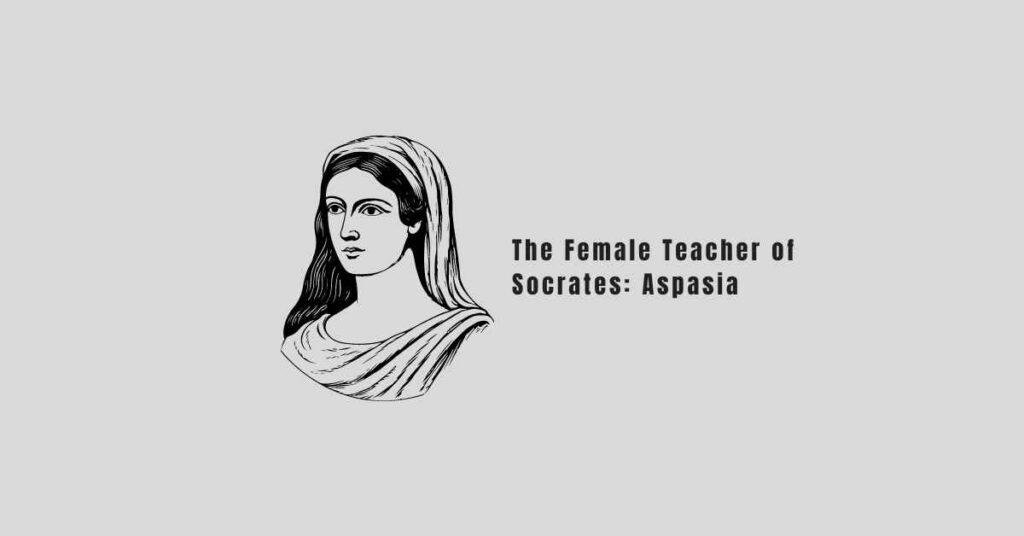
While Socrates is primarily known for his interactions with male students, there is evidence to suggest that he also had a female teacher: Aspasia. Aspasia was a prominent figure in ancient Athens, known for her intelligence, wit, and influence.
Although she was not formally recognized as a philosopher in the male-dominated society of ancient Greece, Aspasia was highly educated and engaged in intellectual discussions with prominent Athenian thinkers, including Socrates.
While the extent of her influence on Socrates’ philosophy is debated among scholars, her presence underscores the importance of women in intellectual circles and challenges traditional notions of women’s roles in ancient Greek society.
You can read this blog to learn more about the philosophy of Aspasia and her relationship with other philosophers including Socrates.
Three Famous Quotes from Socrates:
Socrates’ philosophical insights are often encapsulated in memorable quotes that continue to resonate with people across generations.
Three of his most famous quotes include:
- “The only true wisdom is in knowing you know nothing.” This quote underscores Socrates’ emphasis on humility and the recognition of one’s limitations. It highlights the importance of intellectual humility and openness to learning, as true wisdom begins with acknowledging our ignorance.
- “An unexamined life is not worth living.” Socrates believed that a life devoid of self-reflection and introspection is devoid of true meaning and value. This quote encourages individuals to engage in self-examination and critical reflection to live a life of purpose and fulfillment.
- “I know that I am intelligent because I know that I know nothing.” This quote reflects Socrates’ paradoxical view of intelligence. Rather than boasting about one’s knowledge, true intelligence lies in recognizing the vastness of one’s ignorance. It emphasizes the importance of intellectual humility and the constant pursuit of knowledge.
These quotes encapsulate some of the fundamental principles of Socratic philosophy and serve as timeless reminders of the importance of critical thinking, self-awareness, and humility.
Conclusion:
In conclusion, exploring the lives and contributions of Socrates’ students provides valuable insights into the philosophy and teachings of this iconic figure.
From Plato to lesser-known disciples, each student played a significant role in preserving and enriching Socratic philosophy.
Through their writings and dialogues, they not only immortalized Socrates’ ideas but also contributed their own perspectives, expanding the boundaries of philosophical inquiry. The enduring legacy of Socratic teachings is evident in their continued relevance and impact on contemporary thought.
By studying Socrates’ students, we gain a deeper understanding of his philosophy and its enduring relevance in our quest for truth, wisdom, and self-discovery.
Frequently Asked Questions:

